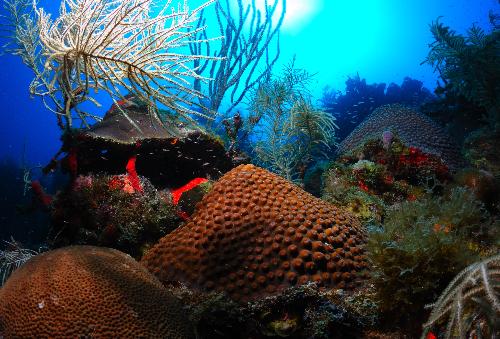Taking steps to improve local water quality can help coral reefs cope with the global problems of climate change and warming seas.
 |
Daniel Wagner from the Florida Institute of technology led a team who studied reefs across the Florida Keys throughout three periods of coral bleaching - when raised sea temperatures cause life-giving algae to abandon their coral hosts, often killing them in the process. In 2005, over half Florida's reefs bleached.
The research team found that the reefs that were hit hardest by bleaching were in areas where municipal wastewater runs off the land and dumps nutrients (mainly nitrates and phosphates) into coastal waters. This stresses the corals, encourages blooms of aggressive algae that outcompete corals and makes them more susceptible to bleaching.
Reefs that coped better with warmer sea temperatures were those bathed in cleaner water.
In the face of so many problems linked to climate change, including warmer, more acidic waters, sea level rise and so on, it can be difficult to remain positive about the state of the oceans, and in particular the vulnerable habitats like coral reefs.
But this study offers good evidence that taking small, local steps to keep water clean can play a crucial part in keeping reefs healthy, making them more likely to survive other threats from climate change, which will need more long-term and international solutions.
A perfect case of thinking globally but acting locally.
- Previous Whales have to shout in noisy seas
- Next Pregnant pause










Comments
Add a comment